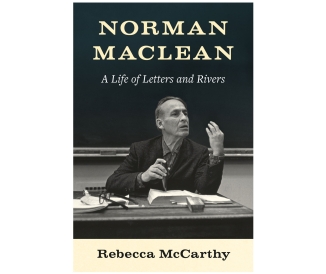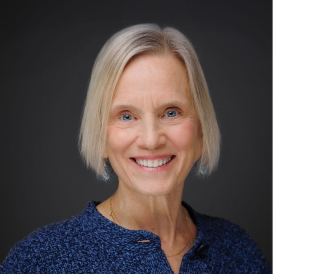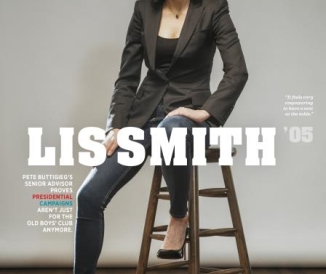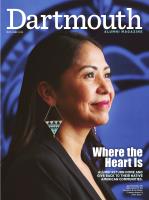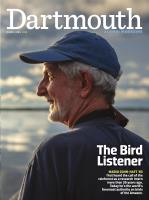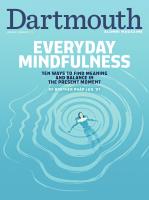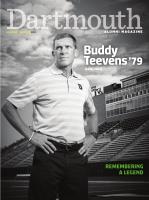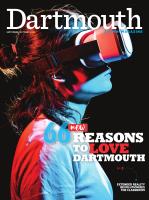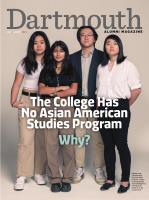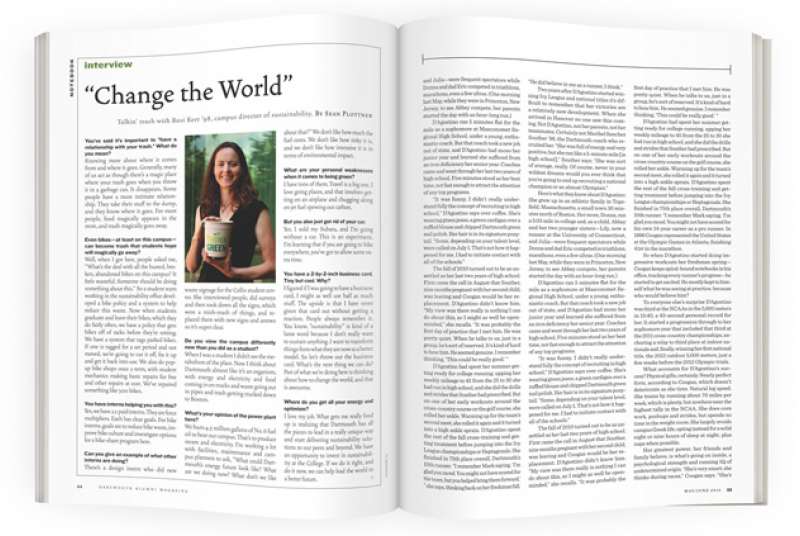
“Change the World”
You’ve said it’s important to “have a relationship with your trash.” What do you mean?
Knowing more about where it comes from and where it goes. Generally, many of us act as though there’s a magic place where your trash goes when you throw it in a garbage can. It disappears. Some people have a more intimate relationship. They take their stuff to the dump, and they know where it goes. For most people, food magically appears in the store, and trash magically goes away.
Even bikes—at least on this campus—can become trash that students hope will magically go away?
Well, when I got here, people asked me, “What’s the deal with all the busted, broken, abandoned bikes on this campus? It feels wasteful. Someone should be doing something about this.” So a student team working in the sustainability office developed a bike policy and a system to help reduce this waste. Now when students graduate and leave their bikes, which they do fairly often, we have a policy that gets bikes off of racks before they’re rotting. We have a system that tags parked bikes. If one is tagged for a set period and not moved, we’re going to cut it off, fix it up and get it back into use. We also do pop-up bike shops once a term, with student mechanics making basic repairs for free and other repairs at cost. We’ve repaired something like 300 bikes.
You have interns helping you with this?
Yes, we have 22 paid interns. They are force multipliers. Each has clear goals. For bike interns, goals are to reduce bike waste, improve bike culture and investigate options for a bike-share program here.
Can you give an example of what other interns are doing?
There’s a design intern who did new waste signage for the Collis student center. She interviewed people, did surveys and then took down all the signs, which were a mish-mash of things, and replaced them with new signs and arrows so it’s super clear.
Do you view the campus differently now than you did as a student?
When I was a student I didn’t see the metabolism of the place. Now I think about Dartmouth almost like it’s an organism, with energy and electricity and food coming in on trucks and waste going out in pipes and trash getting trucked down to Boston.
What’s your opinion of the power plant here?
We burn 4.5 million gallons of No. 6 fuel oil to heat our campus. That’s to produce steam and electricity. I’m working a lot with facilities, maintenance and campus planners to ask, “What could Dartmouth’s energy future look like? What are we doing now? What don’t we like about that?” We don’t like how much the fuel costs. We don’t like how risky it is, and we don’t like how intensive it is in terms of environmental impact.
What are your personal weaknesses when it comes to being green?
I have tons of them. Travel is a big one. I love going places, and that involves getting on an airplane and chugging along on jet fuel spewing out carbon.
But you also just got rid of your car.
Yes. I sold my Subaru, and I’m going without a car. This is an experiment. I’m learning that if you are going to bike everywhere, you’ve got to allow some extra time.
You have a 2-by-2-inch business card. Tiny but cool. Why?
I figured if I was going to have a business card, I might as well use half as much stuff. The upside is that I have never given that card out without getting a reaction. People always remember it. You know, “sustainability” is kind of a lame word because I don’t really want to sustain anything. I want to transform things from what they are now to a better model. So let’s throw out the business card. What’s the next thing we can do? Part of what we’re doing here is thinking about how to change the world, and that is awesome.
Where do you get all your energy and optimism?
I love my job. What gets me really fired up is realizing that Dartmouth has all the pieces to lead in a really unique way and start delivering sustainability solutions to our peers and beyond. We have an opportunity to invest in sustainability at the College. If we do it right, and do it now, we can help lead the world to a better future.

